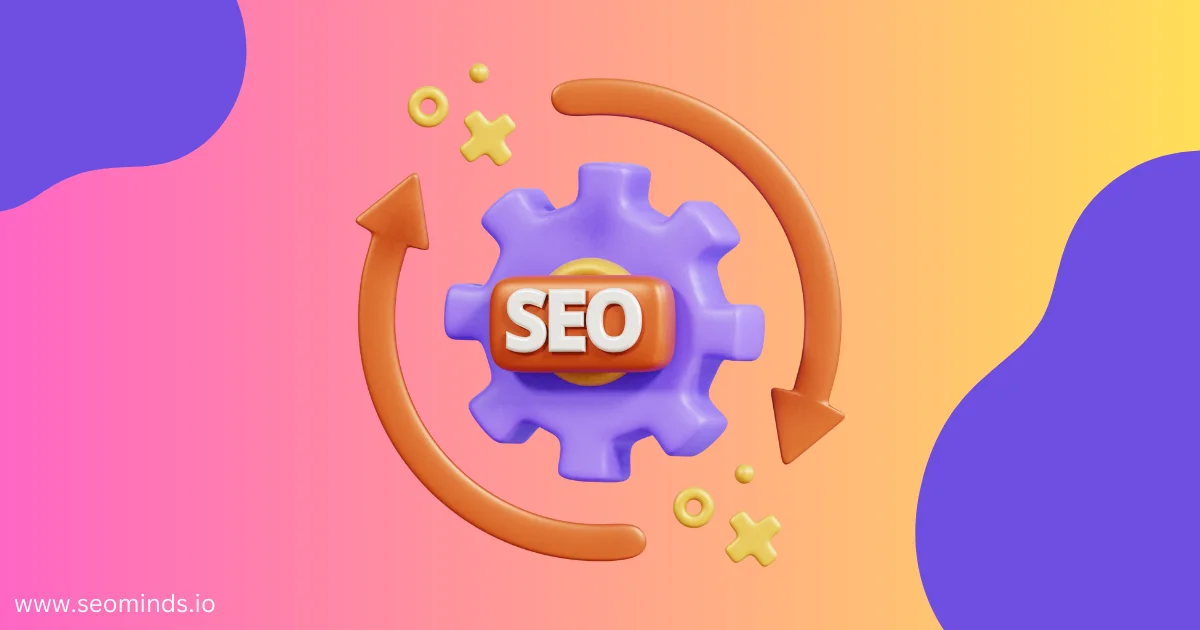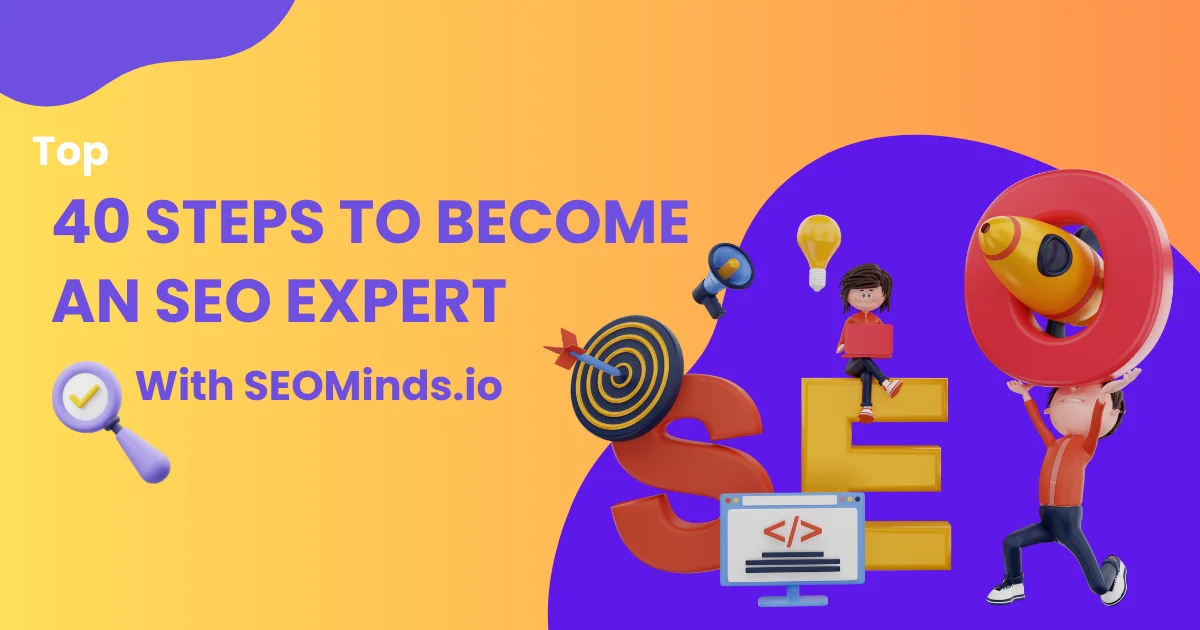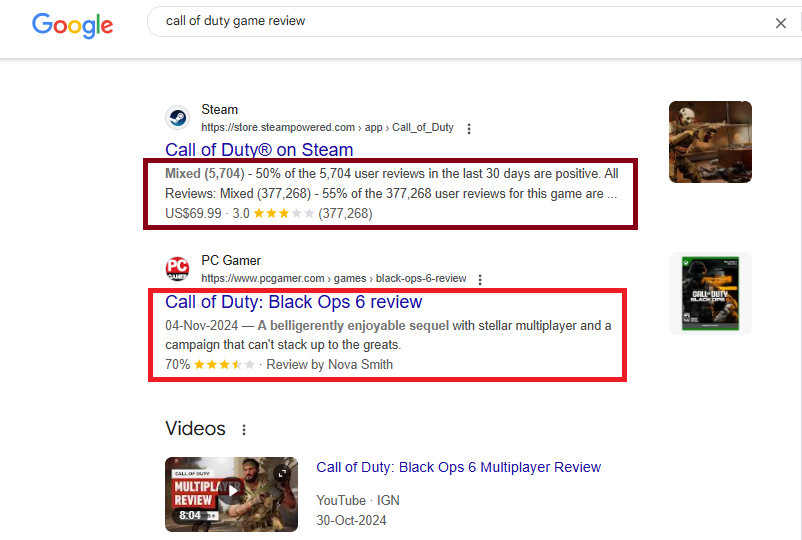Are you a business owner or new to digital marketing? If so, you may be wondering about SEO. Don’t worry, you’re in the right place to learn how to get involved and become an expert in this field.
1. What is SEO?
Search Engine Optimization (SEO) improves a website’s visibility on search engines like Google, Bing, and Yahoo. By utilizing various strategies and techniques, it aims to strengthen organic (non-paid) traffic to a website.
Here are the key elements:
- keyword research
- On-page optimization
- Off-page strategies
- Technical SEO
For beginners, understanding search engine optimization can seem difficult due to its technicality and the ever-changing algorithms of search engines. However, the fundamental goal of SEO is to make a website more appealing to both users and search engines.
By focusing on relevant keyword shitter and searching through content on a webpage, businesses can increase their chances of appearing on the first page of search results. This visibility is crucial because most of the users don’t scroll down the first page.
2. The Importance of SEO in Today’s Digital World
In today’s digital world, SEO optimizacija is very important for online businesses. Because more and more people are using search engines to find what they want, having a good SEO plan can help rank a site better in search results.
When a website charch ranks higher, it gets more visitors. Being on the first page of search results makes a brand look more trustworthy because people usually believe in higher-ranked sites more. Good strategy also improves the experience for users, keeping them on the site longer and making them less likely to leave quickly.
In a competitive market, businesses that focus on these practices can do better than their competitors, reach their target audience, and get more sales. Since search engines are always changing, businesses need to update their online success strategies to stay effective and ahead.
3. How SEO Affects Your Website’s Visibility
Search engine optimization has a significant impact on how easily your website can be found on search engines. When people search online, search engines use pr algorithms to determine which websites are most relevant and trustworthy. Websites that utilize good and ethical techniques are more likely to appear higher in search results, making them more accessible to potential visitors.
Here are several key factors that influence a website’s visibility:
- Keyword Optimization: Using the right queries in your content can help match what users are searching for and increase the likelihood of appearing in the top search results.
- Quality Content: Providing valuable and informative content keeps visitors engaged and encourages them to spend more time on your site.
- Site Speed: A fast-loading website is essential. If a site takes too long to load, visitors might leave before it even appears.
- Mobile-Friendliness: Google holds a significant share of the search engine market, both on desktop and mobile. Since many people browse the internet on their phones, having a site that looks good and functions well on mobile devices is crucial.
A well-organized website that loads quickly and is easy to navigate also enhances the user experience, which can improve its ranking on search engines.
4. Why Every Business Needs a Digital marketing and SEO Expert
Having an SEO and amz digital fra marketing expert is important for every business. These experts know how to improve a company’s visibility on the internet. They keep up with the latest trends and changes in search engines to make sure businesses stay competitive.
An expert helps find the best watchword that potential customers are searching for and adjusts website content to match. They also study competitors, check how well a website is performing, and create strategies that fit the company’s goals.
They also handle the technical side, like how a website is built, making sure it works well on phones and improving page speed. These things help websites rank higher in search results. By having an SEO expert, businesses can be more visible online, attract more visitors, and increase sales.
5. The Role of SEO in Online Marketing Strategies
It is a key part of any successful online marketing plan. It works together with other methods like content marketing, social media, and paid ads (PPC) to drive traffic and raise brand awareness. By making a website better for search engines, businesses can rank higher in search results, which makes them more visible to potential customers.
Search engine optimization helps attract the right kind of visitors by making sure the content matches what people are looking for, increasing the chances of turning them into customers. It also helps build trust because websites that rank higher are often seen as more reliable by users.
When it is combined with other marketing strategies, it creates a clear and consistent message across different platforms, making everything work better together. For example, data from SEO can help guide content marketing by showing which topics and queries to focus on.
6. What Google Says About SEO Best Practices
Google has clear advice on how to improve your website’s visibility and performance. The most important thing is creating high-quality content that is helpful, relevant, and engaging for users. Google also stresses the need for fast-loading pages and mobile-friendly websites, as these improve the user experience.
Google recommends using clear, rich titles and meta descriptions to attract more clicks from search results. Using structured data can also help search engines better understand your content, which may lead to special features (like rich snippets) in search results.
Google warns against tricks like stuffing too many keywords or hiding text to manipulate rankings, as these can lead to penalties. By following Google’s guidelines, businesses can build websites that not only rank better but also offer real value to users. This is key to long-term SEO success.
7. Understanding Google’s Algorithm for SEO
The Google Work algorithm is a complex system that decides how web pages are ranked in search results. It looks at many factors, like relevance, quality, and user experience, to show the best results for what people are searching for. Understanding how this system works can help businesses improve their websites.
The algorithm focuses on high-quality content that matches what users are looking for and trusts the most relevant results. Important parts include on-page factors like using the right queries, meta tags, and good content, as well as off-page factors like getting backlinks and social signals.
Google also uses machine learning and artificial intelligence to constantly improve its algorithm. This means businesses need to keep updating their SEO strategies to stay in line with any changes. By knowing how Google’s algorithm works, businesses can create better strategies to rank higher and attract more visitors to their sites.
What Is Crawling in SEO?
Crawling refers to the process by which search engines use bots or spiders to discover and index searching content on the web. These bots systematically browse websites, following links to gather information about pages, including their structure, content, and keywords.
This data is then stored in a search engine’s database, allowing it to deliver relevant search results to users. Effective crawling ensures that a website is indexing algorithms properly, making it easier for search engines to rank and display the site in response to relevant queries.
8. How Google Algorithms Impact Search Rankings
Google’s algorithms play a big role in deciding how websites rank in search results. When someone searches for something, the algorithms look at things like keyword relevance, content quality, website authority, and user engagement (like how many people click on a link or how long they stay on a page).
Changes in these algorithms can affect a website’s ranking a lot. For example, an update might reward sites with a great user experience or punish those using unfair tactics. This is why businesses need to stay updated on algorithm changes and adjust their best strategies as needed.
A World Where Rankings Decide Everything
Regularly checking how your site is performing and following best practices can help lessen the negative effects of algorithm changes. Understanding how Google’s algorithms impact rankings is key for any business that wants to boost its visibility and get more organic traffic.
9. A Deep Dive into Google’s Algorithm Updates
Google’s algorithm updates are very important for shaping how SEO works. Over the years, Google has made many updates to improve the quality of search results and the user experience. These updates can be small changes or big shifts in how websites are ranked.
Key updates like Panda, Penguin, and Hummingbird focused on different parts of SEO:
- Panda punished websites with low-quality content.
- Penguin targeted websites that used unfair link-building practices.
- Hummingbird helped Google understand search queries better, allowing it to match what users really want.
It’s important for businesses and SEO konsulent to stay aware of these updates because they can quickly change how websites rank. By studying past updates, businesses can adjust their strategies to keep up with Google’s standards and continue to rank well.
10. The Evolution of Google Algorithms Over the Years
Google’s algorithms have changed a lot over the years to improve search quality and satisfy users. In the beginning, Google focused on simple factors like keyword relevance and website structure. But as the internet grew and users’ needs changed, Google introduced more advanced algorithms that consider things like content quality, user experience, and trustworthiness.
Major updates like Panda (2011), which penalized low-quality content, and Penguin (2012), which targeted bad link-building practices, marked a shift towards putting users first. In 2015, Google launched RankBrain, which uses machine learning to understand search queries better and provide more accurate results.
Today, Google’s algorithms are more advanced than ever, using artificial intelligence to deliver personalized search results based on what users want and how they behave. This evolution shows how important it is for businesses to update their SEO strategies regularly so they can stay visible in a highly competitive online world.
11. Key Google Updates: Panda, Penguin, and Hummingbird
Google has made several important updates to improve search results, with Panda, Penguin, and Hummingbird being some of the most notable changes in SEO history.
Panda (2011) aimed to improve content quality. It punished low-quality websites and rewarded those with high-quality, valuable content. This update encouraged businesses to focus on creating useful and engaging content instead of relying on keyword stuffing or poor-quality articles.
Penguin (2012) targeted bad link-building practices. It penalized websites that used spammy tactics to artificially boost rankings, making it important to earn quality backlinks from trustworthy sources.
What Was The Purpose Of The Google Hummingbird Algorithm Update
Hummingbird (2013) helped Google better understand natural language and context in search queries. This update allowed Google to focus more on what users intend to find rather than just matching keywords.
Together, these updates changed SEO by pushing businesses to prioritize high-quality content and ethical practices.
12. How Many SEO Updates Has Google Launched?
Google frequently updates its search algorithms to improve the quality of search results and user experience. While there are usually hundreds of small updates each year, several major updates can have a big impact on search rankings. These updates often focus on things like content quality, website structure, and backlinks.
Big updates like Panda and Penguin have changed SEO by setting new rules for creating quality content and building ethical links. Google also tests changes in real-time, so it can be hard even for professionals to keep up with every update. Google’s constant improvements show its dedication to providing users with the best and most trustworthy results.
13. The Impact of Core Web Vitals on SEO
Core Web Vitals are a set of measurements Google uses to evaluate user experience on websites. They focus on three main areas: how fast a page loads, how quickly users can interact with it, and how stable the page layout is as it loads. These factors directly affect search rankings.
- Largest Contentful Paint (LCP) measures how quickly the main content on a page loads.
- First Input Delay (FID) tracks how fast users can interact with the page.
- Cumulative Layout Shift (CLS) measures how much the page layout moves around as it loads.
Since Google now uses Core Web Vitals as part of its ranking system, websites that perform well in these areas have a better chance of ranking higher in search results. Every business needs to focus on speeding up their websites, making them responsive, and reducing layout shifts. Improving these areas not only boosts rankings but also creates a better experience for users.
14. Understanding User Intent
User intent, or search intent, is the reason why someone types a specific query into a search engine. Understanding this intent is key to successful SEO because it helps businesses choose the right keywords and create content that matches what users are looking for.
There are 4 main types of user intent:
- Informational: Users want to learn something, like how to optimize my website for SEO.
- Navigational: Users are looking for a specific website or page.
- Transactional: Users are ready to buy, such as running shoes online.
- Commercial Investigation: Users are researching products before making a decision.
By understanding and targeting user intent, an expert can create content that better matches what users want, increasing the chances of engagement and conversions. Search engines like Google now focus on showing results that best match user intent, so businesses need to optimize their content accordingly. Focusing on user intent leads to more relevant content, higher traffic, and improved rankings.
15. The Importance of Keyword Research
Keyword research is a key part of successful SEO because it helps to create content that matches what people are searching for. By finding the right words and phrases that potential customers use, you can improve the chances of showing up in Google results.
Effective keyword revealer research looks at how often certain keywords are searched, how much competition there is for them, and what users are trying to achieve with their searches. High-traffic keywords with low competition can be great opportunities to rank higher. Long-tail keywords, which are more specific phrases with lower search volume, can attract more targeted traffic that’s likely to convert into sales.
Tools like Google Keyword Planner, SEMrush, Ahrefs, and content keyword cannibalization tool software online free can help you find valuable keywords and track how they perform. By naturally adding these keywords into your content, titles, and meta descriptions, you can improve SEO and the user experience.
16. On-Page vs. Off-Page SEO: What’s the Difference?
On-page and off-page SEO are two important parts of a successful strategy.
On-page SEO
It refers to everything you do directly on your website to improve its ranking in search results. This includes optimizing your content, meta tags, headings, and internal links, and making sure your site is user-friendly. It focuses on keyword use, content quality, and how well your site is organized to help search engines understand what your page is about.
Off-page SEO
It involves external factors that improve your site’s authority and trustworthiness. This mainly includes building backlinks from other reputable websites but also involves social media presence, brand mentions, and partnerships with influencers. These factors help boost your website’s reputation and ranking potential.
17. Technical SEO
Technical SEO focuses on improving the behind-the-scenes parts of your website to help search engines understand and rank it better. A strong technical foundation is required because it ensures that search engines can easily find, read, and index coverage for your site.
Key aspects of technical SEO include:
- Site speed: Making sure your site loads quickly.
- Mobile-friendliness: Ensuring your site works well on phones and tablets.
- HTTPS: Using a secure connection for your site.
- Site structure: Organizing your site logically so users and search engines can navigate it easily.
- Structured data: Adding code to help search engines better understand your content, which can lead to rich snippets in search results.
- XML sitemaps and robots.txt: Guiding search engines through your site’s structure and telling them what to crawl or ignore.
By keeping your technical SEO in check, you increase your chances of ranking higher and providing a smooth experience for users.

18. The Role of Backlinks in SEO Ranking
Getting backlinked are connections from other websites that lead to your site, and they play an important role in SEO. Search engines like Google see them as a sign that your website is credible and trustworthy. The more high-quality backlinks leeds you have, the better your chances of ranking higher in search results.
However, not all are equal. Links from reputable and trusted websites are more valuable than links from low-quality or unrelated sites. Having a variety of backlinks from different sources also helps improve your SEO.
Good ways to build the links include guest blogging, working with influencers, and creating content that others want to share. It’s important to earn honestly because using tricks to get them can lead to penalties from search engines. In short, da90 backlinks with good SEO stats can be helpful for improving your website’s authority and rankings. Its also very important to check backlinks and dataview to monitor our performance.
19. Local SEO: Why It Matters for Small Businesses
Local SEO companies can help small businesses attract customers in their area by making sure they appear in local search results. This is especially important for small businesses competing with larger companies. Local SEO includes optimizing your Google My Business listing, making sure your name, address, and phone number (NAP) are correct everywhere online, and encouraging customer reviews.
When people search for products or services near them, search engines show local results first. Using local keywords, creating content focused on your area, and getting listed in local directories can boost your visibility. Backlinks from local organizations also help build your reputation.
20. The Future of SEO: Trends to Watch
SEO is constantly changing due to new technology, how people search, and updates to search engine rules. One big trend is the rise of voice search, where more people use virtual assistants like Siri and Alexa to ask questions. This means businesses need to create content that matches how people naturally speak.
Artificial Intelligence Search engine optimization and machine learning are also changing how search engines show results, making searches more personalized. User experience is becoming even more important, with Google’s Core Web Vitals focusing on how fast and smoothly websites work. Since most people search on their phones, mobile optimization will stay crucial.
Video content is becoming more popular, so businesses or individual website owners should include videos in their plans. Local SEO is also growing in importance as more people search for nearby services.
21. How to Measure SEO Success
To see if your efforts are working, you need to track certain important metrics.
- Organic Traffic: This shows how many visitors come to your website from search engines. By looking at this number over time, you can see trends and understand how effective your plan is.
- Keyword Rankings: This tells you how well your website ranks for specific keywords. Tools like Google Search Console can help you track how your keywords are performing and if there are any changes in rankings.
- Bounce Rate: This metric shows the percentage of visitors who leave your site after viewing just one page. A high bounce rate might mean visitors aren’t finding what they expected.
- Average Session Duration: This indicates how long visitors stay on your site. Longer sessions usually mean that your content is valuable to users.
- Conversion Rates: This tracks how many visitors complete desired actions, like making a purchase or signing up for a newsletter. It helps measure the overall success of your pagination raph SEO efforts.
22. The Link Between SEO and User Experience
SEO and user experience (UX) go hand in hand because search engines want to provide users with great experiences. A well-optimized website not only helps you rank higher in search but also makes it easier and more enjoyable for users to navigate.
Key factors of user experience include:
- Site Speed: A website that loads quickly keeps visitors engaged, which can lower bounce rates and improve your rankings.
- Mobile responsiveness: Having a mobile-friendly design ensures that users on smartphones and tablets can easily access your content, which boosts engagement.
- Intuitive Navigation: Easy-to-use navigation helps visitors find what they’re looking for, making them more likely to stay longer.
- Content Quality: Providing valuable and relevant information keeps users satisfied and encourages them to explore more pages on your site.
Search engines look at user behavior metrics, like how long people stay on your site and click-through rates, to determine rankings. This means that a positive user experience can directly help your SEO efforts.
23. Mistakes to Avoid for Better Rankings
To achieve and keep high search engine ranking reports, it’s important to avoid common SEO mistakes. Here are some key errors to watch out for:
- Neglecting Keyword Research: Not finding the right keywords can lead to content that doesn’t connect with your target audience.
- Keyword Stuffing: Overusing keywords in an attempt to boost rankings can get you penalized by search engines.
- Ignoring Mobile Optimization: With more people using mobile devices, having a website that isn’t mobile-friendly can hurt your rankings.
- Poor Site Speed: Slow loading times can frustrate users and negatively impact. To improve speed, optimize images, use browser caching, and consider a content delivery network (CDN).
- Overlooking Technical SEO: Ignoring issues like broken links or missing alt tags can prevent search engines from properly indexing your site.
- Not Monitoring and Adapting: Failing to track your analytics and adjust your strategies can lead to stagnation in rankings.
24. How Long Does SEO Take to Show Results?
The time it takes to show results can vary a lot. Factors like industry competition, the quality of your strategy, and your website’s current state all play a role. Generally, businesses might see some early improvements in search rankings within three to six months after starting effective SEO practices. However, to rank on the first page for competitive keywords, it could take six months to a year or even longer.
Here are some key factors that influence this timeline:
- Market Competition: More competition can slow down results.
- Keyword Targeting: Choosing effective keywords can help you see improvements sooner.
- Content Quality: High-quality content can lead to better rankings.
- Website Age and Authority: Newer websites may take longer to gain traction than established ones.
You have to be patient and stay focused on ongoing optimization and improving content. Regularly monitoring performance and making adjustments can help speed up results, leading to better visibility and more organic traffic over time.
25. Free and Paid Tools for SEO: Which Ones to Use?
Using the right tools for SEO can greatly improve your strategies and make your work easier. There are both free and paid tools, each with its own features and benefits.
Free Tools That Start With G:
- Google Search Console: Provides insights into your website’s performance and keyword rankings.
- Google Analytics: Offers data on traffic sources and user behavior, helping you understand how people interact with your site.
- Ubersuggest: Great for keyword research.
- Moz’s Link Explorer: Helps analyze backlinks checken.
- Ctrify ai seo tool
Paid Tools:
- SEMrush: Offers advanced keyword tracking and competitor analysis.
- Ahrefs: Known for its powerful site auditing capabilities and backlink analysis.
- Moz Pro: Provides in-depth features for content optimization and site performance.
- Ctrify app/ Ctrify the ai seo tool
Paid tools often have more features, like content recommendations and social media tracking, making them suitable for businesses aiming to improve their performance further. Ultimately, the choice between free and paid tools depends on your business needs and budget. Using a mix of both can create a strong strategy.
26. Content Marketing
Content marketing is important because it helps attract organic traffic and improve online visibility. Creating high-quality and relevant content establishes your website as an authority in its field, making it more likely to rank well in search results.
By producing informative blog posts, articles, videos, and infographics, you can meet user needs and answer common questions, driving traffic and engagement. It’s also important to include targeted keywords in your content; this means using keyword-rich titles, headings, and meta descriptions to enhance visibility.
Valuable content is more likely to be shared and linked to by other websites, which helps improve your site’s backlink profile and is an important factor for rankings. Regularly updating and refreshing your content shows search engines that your site is active and relevant.
27. The Importance of Mobile Optimization
Mobile optimization is also very important because many users browse the internet using smartphones and tablets. Google now looks at the mobile version of a website first when deciding search rankings. If a site isn’t mobile-friendly, it may not show up as high in search results, leading to less traffic.
Key parts of mobile optimization include having a responsive design that works on all screen sizes, fast loading times, and easy navigation. Mobile-friendly websites can help you reach more people and increase sales in a world where mobile usage is growing.
28. How Social Media Helps Improve SEO
Social media is important for improving visibility because it helps attract visitors, build brand awareness, and increase online visibility. While social media interactions don’t directly affect search rankings, the attention gained from these platforms can help SEO indirectly.
When businesses share great content on social media, they can reach a bigger audience, which can lead to more likes, shares, and comments. This increased activity can drive more traffic to their websites, signaling to search engines that the content is valuable.
29. Understanding the Cost of SEO Services
The search engine optimization cost services can vary a lot depending on different factors. These include the type of services offered, the expertise of the agency or SEO consultant, and how competitive the industry is. Typically, businesses can expect to pay anywhere from a few hundred to several thousand dollars each month for complete search engine optimization consultant services.
Some of the factors that affect the cost include the size of the website, how much keyword research is needed, the quality of content being created, and how complex the technical improvements are. Some agencies provide package deals, while others may charge by the hour or based on specific projects.
Also, local services might have different prices compared to national or international campaigns. It’s important for businesses to understand their needs and budget before choosing a service provider. While cheaper options might seem appealing, investing in quality services can lead to better long-term results, including increased visibility, more traffic, and higher revenue.
If you’re looking for expert SEO services, check out our page at SEOminds to see how we can help your business grow!
30. Why SEOminds is a Leading SEO Agency
SEOminds has become a top SEO agency by consistently delivering outstanding results for clients in various industries. Our team of experienced professionals combines skills in keyword research, content creation, technical SEO, and link building to develop customized strategies that drive organic traffic and improve search rankings.
We focus on understanding each client’s unique goals and challenges, which allows us to create tailored solutions that meet their specific needs. We use the latest tools and techniques, keeping up with industry trends and navboost algorithm changes to make sure our clients stay safe from the penalties.
We also prioritize transparent communication and regular reporting, enabling clients to easily track progress and return on investment (ROI). By focusing on client satisfaction and providing measurable results, SEOminds has built a strong reputation as a trusted partner for businesses looking to enhance their online presence and achieve long-term success.
31. Comparing SEOminds and Egochi Miami SEO Agency
When comparing SEOminds and Egochi Miami SEO Agency, both have unique strengths that cater to different business needs. SEOminds is known for its comprehensive approach, offering a wide range of digital marketing services, including SEO, content creation, and web development.
Our commitment to understanding each client’s unique challenges allows us to create tailored strategies that drive organic traffic and improve search rankings. We use advanced tools like backlink maker by alaikas and techniques to stay ahead of industry trends, ensuring that our clients receive the most effective solutions for their digital marketing goals.
On the other hand, Egochi search engine optimization agencies specializes in local services, making it a great choice for businesses aiming to enhance their visibility in specific geographic areas. With a strong focus on local search optimization, Egochi Miami provides the tools and strategies needed for businesses to effectively attract local customers.
Ultimately, the choice between SEOminds and Egochi Miami SEO Agency depends on a business’s specific needs, goals, and target audience. If you’re looking for a more comprehensive digital marketing strategy, SEOminds may be the better fit.
32. How to Choose the Right SEO Agency for Your Business
Choosing the right search engine optimization agency is important for achieving great results. Start by figuring out your specific needs and goals. Do you need complete services or just focus on areas like local SEO or content marketing? Research potential agencies carefully; look for firms that have a strong history of success in your industry. Client reviews and case studies can give you valuable insights into what the agency can do.
A good agency should practice ethical methods and be open about their strategies. Communication is key, so make sure the agency is responsive and provides regular updates on progress. Finally, consider your budget. Quality services may require a significant investment, but it’s important to find an agency that offers good value for your financial situation. By taking the time to research and evaluate potential partners, you can find an agency that aligns with your goals and helps you achieve long-term success.
33. The Small Businesses Benefits
SEO has many benefits for small businesses that want to improve their online presence and attract new customers. One of the biggest advantages is better visibility in search engine results. By optimizing their websites for relevant keywords, small businesses can increase their chances of showing up on the first page of search results, which leads to more visitors.
It is also a cost-effective marketing strategy compared to traditional advertising, allowing small businesses to compete with larger companies without spending a lot. Additionally, a well-optimized website builds credibility and trust, signaling to users that the business is reliable. Local SEO is especially beneficial, helping small businesses attract customers nearby, which can boost foot traffic and sales. By focusing on SEO, small businesses can achieve sustainable growth, increase brand awareness, and build long-lasting customer relationships.

34. Trends and Google SEO leak 2024
As the digital world changes, some key SEO trends are emerging for 2024 that businesses should focus on to stay competitive. One major trend is the growing importance of optimizing for voice search due to the rise of smart speakers and voice-activated devices. Businesses should aim to optimize content for natural language queries and question-based searches.
Another trend is the increasing use of artificial intelligence (AI) and machine learning in SEO. These technologies help search engines understand user intent better and provide more relevant results. Therefore, creating high-quality, user-focused content will be vital for maintaining visibility.
User experience will also continue to be crucial, with Google’s Core Web Vitals influencing search rankings. Mobile optimization remains important, given the rise in mobile traffic. Finally, businesses should consider adding video content to their SEO strategies, as it becomes more popular for sharing information. By keeping up with these trends, businesses can set themselves up for success in 2024 and beyond.
35. How to Stay Ahead of Your Competitors
To stay ahead of competitors in the digital world, you need a strategic approach to SEO that focuses on continuous improvement. Start with a thorough competitive analysis to find out what your competitors do well and where they fall short. Tools like SEMrush and Ahrefs can help you see keyword rankings, backlink profiles, and content performance.
Use this information to refine your keyword targeting and create unique, high-quality content that fills gaps in what your competitors offer. Prioritize on-page optimization by ensuring your website is technically sound, mobile-friendly, and provides a great user experience. Building a diverse backlink profile through ethical link-building methods is also important for improving your authority and rankings.
Regularly monitor your website metrics and stay updated on industry trends to help Google identify improvement opportunities.
36. The Benefits of SEO for E-Commerce Websites
SEO is especially important for e-commerce websites because it directly affects visibility, traffic, and sales. By optimizing product pages with relevant keywords, e-commerce sites can increase their chances of appearing on the first page of search results, attracting buyers who are actively searching for their products.
SEO for shopify bradford also enhances user experience through better site navigation, faster loading times, and mobile responsiveness, which keeps customers engaged and reduces bounce rates. High-quality content, like product descriptions and blog posts, not only improves search rankings but also provides useful information to buyers during their shopping process.
Local SEO strategies can be very effective for e-commerce businesses that target specific areas, helping to drive foot traffic to physical stores when applicable. Implementing structured data markup can improve product visibility by allowing rich snippets in search results, showing prices and reviews directly.
37. How to Conduct a Successful SEO Audit
Conducting a successful SEO audit is essential for identifying strengths, weaknesses, and opportunities for improvement in your website’s performance. Start by setting clear goals, like improving rankings, increasing organic traffic, or enhancing the user experience. Use tools like Google Analytics and Google Search Console to gather data about your website’s performance, including traffic sources, bounce rates, and keyword rankings.
Next, evaluate on-page factors, such as title tags, meta descriptions, headers, and keyword usage, to ensure they follow best practices. Check my backlinks businessnewstips and technical aspects of your site, like site speed, mobile responsiveness, and crawlability, and look for broken links or errors. Analyze your backlink profile to find high-quality inbound links and any toxic links that might need to be disavowed.
38. The Relationship Between PPC and SEO: Can They Work Together?
Pay-per-click (PPC) advertising and search engine optimization are two powerful digital marketing strategies that can complement each other to enhance online visibility and drive traffic. While SEO focuses on organic search results and long-term strategies, PPC provides immediate visibility through paid ads. Combining both strategies can offer significant benefits for businesses.
For example, using PPC can help identify high-performing keywords and audience segments that you can leverage for your SEO efforts. Analyzing PPC data allows businesses to refine their targeting and content strategies, improving organic rankings. Additionally, running PPC campaigns alongside SEO initiatives can boost brand visibility and credibility, as users often see businesses in both paid and organic results as more trustworthy.
Moreover, using PPC for retargeting can help re-engage users who visited the site but didn’t convert, which complements organic traffic efforts. By creating a cohesive strategy that combines PPC and SEO, businesses can maximize their reach, improve conversion rates, and establish a stronger online presence.
39. What is the difference between local and organic SEO?
Local SEO focuses on optimizing a website to attract traffic from specific geographic areas, making it ideal for businesses with physical locations. It emphasizes local search results, utilizing strategies like Google My Business optimization, local citations, and customer reviews to enhance visibility in local searches.
40. Final Words
Organic SEO aims to improve a website’s overall visibility in search engine results pages (SERPs) regardless of location. It involves broader strategies, such as keyword optimization, quality content creation, and link building, to drive traffic from a wider audience. Essentially, local SEO targets local customers, while organic seeks to reach a global audience.








